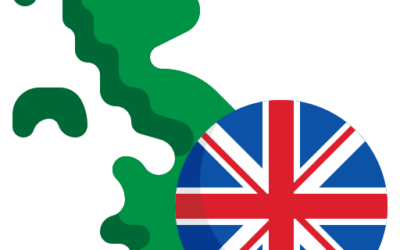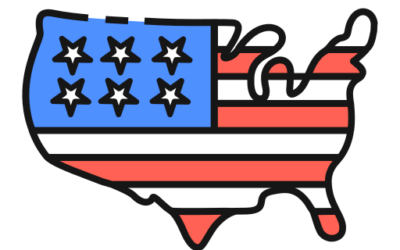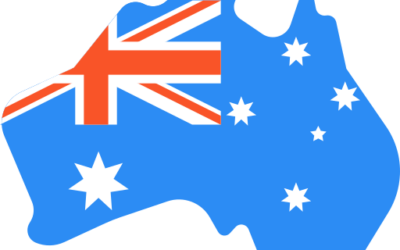News

Ireland
In 1841, Ireland's population was over 8 million. A recent reassessment suggests that it was even greater, perhaps 8.75 million or even higher. By...
United Kingdom
Although Ireland had been subject to English rule since the 12th century, it was not until the Act of Union in 1800 that it formally became part of...
North America
An estimated 40 million people in the United States claim Irish ancestry. In the 19th century, the principle entry port was New York where...
Australia
Between 1845-1860, over a quarter of a million Irish immigrated to Australia. Immigrants were made up of free-settlers, evicted tenants/indentured...
South America
Many Irish immigrated to South America in the mid 19th century. A major drive took place at this time to colonize Argentina, and many rural Irish...
Canada
In 1847, over 100,000 Irish people arrived at the ports of Quebec, Halifax, Saint John (New Brunswick) and Saint John’s (NFL). Conditions on the 6-8...
Asia
Prior to 1922, large numbers of Irish joined the British Army and were sent overseas to serve in the colonies in Asia (mostly to Afghanistan and...
South Africa
Although South Africa did not attract large scale migration, many Irish immigrated in small numbers throughout the 19th century. Hundreds of Irish...
New Zealand
It has been estimated that about 2,000 Irish emigrants entered New Zealand in the half-century between 1870 and 1920. Immigrants to New Zealand,...
We are are now past the important decade of commemoration (1913-1922) when many events were held in various parts of Ireland. Outlined below is a (very) brief caption summary of some of the most significant dates.
- The Great Lockout of 1913…
marked one of the momentous events in Irish labour history (August 1913 – January 1914) when up to 20,000 workers came out on strike in Dublin thus beginning one of the most severe and significant industrial disputes in the state. Those workers who refused to sign a pledge never to join a union were sacked or ‘locked out’. Rioting and violence ensued on the streets of Dublin and after 6 months, when hunger and a withdrawal of suport from the British Trade Union, workers gave in and were forced to sign. However, many never regained their old jobs. The lockout had many long term consequences not least the emergence of the Irish Citizen Army, who a few years later took part in the Irish Rebellion known as the Easter Rising.
- The First World War (1914-1918)…
saw thousands of Irish men and women join British armed forces to fight against the Central Powers of Germany and the Austro-Hungarian Empire (recent estimates suggest over 200, 000). If your ancestors fought in the Great War, it is probably that their records survive.
- The Easter Rising 1916…
refers to one of the most pivotal events in recent Irish history to the extent that it is known colloquially as ‘1916‘. Current debate is focusing on how best (and with whom) to commemorate this tumultous period in our history.
- The first Dail (Irish assembly) 21 January 1919…
was held 21 January 1919 in the Mansion House, Dublin. Over forty of the elected members were absent as they were either in prison or on the run. A temporary cabinet was elected with Cathal Brugha as the first president and Michael Collins as the Minister for Home Affairs. However in April of that year, Cathal Brugha was suceeded by Eamon de Valera.
- War of Independence 1919-1921…
also known as the Anglo-Irish War was an armed struggle between the British and Irish nationalists and the first shots in the conflict were fired on the same day as the first Dail.
- The Free State Treaty and the establishment of the Provisional Government in 1922…
although a major achievement in some people eyes, it was a major catastrophe in others, and its effects on the political and economic history of Ireland continue to this day.
- The Irish Civil War 1922-23…
was a conflict waged between two opposing groups of Irish nationalists, those in the Provisional Government who established the Free state in 1922 and those who opposed it. The two main parties in the Republic of Ireland today are direct descendants of these two opposing sides (Fianna Gael and Fianna Fail). The civil war was one of the most tragic periods in Irish history as it set family against family and wrenched friends and neighbours apart.
Events
Ireland
- View online historical newspaper that tells the story of the events of Irish life a century ago http://www.rte.ie/centuryireland
- Keep up to date with Irish Genealogy News and view Claire Santry’s excellent website at http://irish-genealogy-news.blogspot.ie
- Glasnevin Cemetery Museum marks centenary of Easter Rising with series of events, check out http://www.glasnevintrust.ie.
- Events at http://www.decadeofcentenaries.com
- Range of lectures at Little Museum of Dublin, National Library of Ireland, National Archives of Ireland and Local Genealogy and History Societies throughout Ireland.
USA
- Ireland’s Great Hunger Museum (Musaem An Ghorta Mhoir) opened in Hamden, Connecticut, mid way between New York and Boston, USA. The museum houses the world’s largest collection of visual art, artefacts and printed material relating to the Irish Famine http://www.ighms.com
Books
Atlas of the Great Irish Famine – John Crowley (Author, Editor),
William J Smyth (Author), Mike Murphy (Author, Editor), William
J. Smyth (Editor)
The Great Famine is possibly the most pivotal event/experience in modern Irish history. Its global reach and implications cannot be underestimated. In terms of mortality, it is now widely accepted that over a million people perished between the years 1845-1852 and at least one million and a quarter fled the country, the great majority to North America.
Soupers and Jumpers – The Protestant Missions in Connemara 1848-1937 by Miriam Moffitt, 2008.
The phrase ‘taking the soup‘ is deeply embedded in the Irish psyche. This book provides a fascinating account of one of the most tragic periods in Irish history, revealing the reality of life in rural Ireland throughout this period.
Tracing Your Irish Ancestors by John Grenham, 2012.
A must for anyone interested in undertaking their own research in Irish genealogy, now in its fourth edition.
Bloody Foreigners – The story of Immigration to Britain by Robert Winder, 2004
Winder’s accessible and readable book describes the waves of mass immigration to Britain that have taken place over the past millennium. Britain as we know it today owes a considerable debt to its past as a cultural melting pot.
Migration in Irish History, 1607-2007 by Patrick Fitzgerald and Brian Lambkin, 2008
Thoroughly researched and brimming with details this rather dry academic read cannot be faulted for its factually content.
Burke’s Guide to Country House Volume 1 Ireland by Mark Bence-Jones, 1978
Although this book is now over thirtly years old, it is still one of the most informative and well illustrated guides to Irish country houses.
Ireland’s Vernacular Architecture by Kevin Danaher, 1975
Kevin Danaher is the ‘old master’ of Irish vernacular architecture and his book (if anyone is lucky enough to locate a copy) is an invaluable starting point in understanding the history of the traditional Irish ‘house’.
Disguise by Hugo Hamilton
This well written and carefully crafted novel by the well known Irish author provides an insightful view into one man’s search for identity. Based in post war Germany it tells the story of a boy whose parents were lost in the war, or that is what he has been told. Many of us take family and our origins for granted, but for others our lives must sometimes be rewritten over and over again as the search for our true identity unfolds.
A City in Wartime: Dublin 1914-1918 by Padraig Yeates, 2011
A City in Turmoil: Dublin, 1919-1921, by Padraig yeates, 2012
A City in Revolution: Dublin, 1922 by Padraig Yeates, forthcoming in 2015
Any one book in this trilogy provides an accessible, well informed and interesting read on contemporary events in one of the most facinating periods of our history.
Dublin: The Making of a Capital City by David Dickson, 2014
This recently published volume has received fabourable reviews and will in time take its place among ‘not to be missed‘ publications for anyone intersted in the development of Ireland’s capital city.
Links
The Gathering Ireland….
Ireland reaching Project….
Campaign to release the 1926 census
History Ireland magazine
Irish book dealers…









